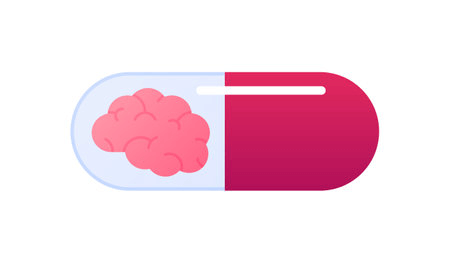Pregnancy Brain: Is It Real or Just a Myth?

If you’ve ever heard an expectant mother say something like, “I can’t remember anything these days!” or “I feel like my brain isn’t working,” you might be hearing about what many call “pregnancy brain.” This phenomenon refers to the forgetfulness, absentmindedness, and mental fog that some women experience during pregnancy. But is pregnancy brain real, or is it just a myth? Let’s explore the facts behind this commonly discussed condition.
What Is Pregnancy Brain?
“Pregnancy brain” is the term used to describe a set of cognitive changes that can affect some pregnant women. It’s often characterized by:
- Forgetfulness – Misplacing things more often or struggling to remember simple details.
- Difficulty concentrating – A feeling of distraction or mental fog, making it hard to focus on tasks.
- Mental fatigue – Feeling mentally tired, even after doing relatively simple tasks.
These symptoms usually begin in the early stages of pregnancy and can persist throughout all three trimesters. Many women report that pregnancy brain feels like a form of “brain fog” that impacts their memory and ability to stay organized.
What Causes Pregnancy Brain?
While it’s easy to laugh off pregnancy brain as just another part of the pregnancy experience, there are real biological factors that could contribute to these cognitive changes:
- Hormonal changes: Pregnancy triggers a surge of hormones like progesterone and estrogen, which are essential for a healthy pregnancy. These hormones can also affect brain function, particularly in areas responsible for memory and cognitive processing.
- Sleep deprivation: Many pregnant women experience sleep issues, especially as their bellies grow larger. Sleep deprivation can have a significant impact on cognitive function, making it harder to focus and remember things.
- Stress and anxiety: Pregnancy can be a stressful time, with concerns about the baby’s health, labor, and preparing for the changes ahead. Stress is known to impair memory and concentration, making pregnancy brain a very real side effect of these heightened emotions.
- Multitasking: Between doctor’s appointments, work, preparing for the baby, and managing everyday life, many expectant mothers have a lot on their plate. Multitasking can overwhelm the brain, leading to lapses in memory and focus.
Is There Scientific Evidence?
Studies on pregnancy brain have shown mixed results. Some research suggests that pregnant women may experience mild cognitive declines, especially in memory and executive function, which supports the reality of pregnancy brain. For example, a study published in the Journal of Clinical and Experimental Neuropsychology found that pregnant women performed worse on memory tasks compared to non-pregnant women.
However, other studies have found little to no evidence that pregnancy brain is a widespread or significant phenomenon. Researchers who conducted brain imaging studies during pregnancy have found changes in brain structure but not necessarily in cognitive performance.
Is It Just a Myth?
Although there’s scientific evidence to suggest that hormonal and lifestyle changes can affect memory during pregnancy, it’s essential to recognize that every woman experiences pregnancy differently. Some women may feel more forgetful or mentally foggy, while others may not notice any significant changes.
Additionally, societal expectations and humor surrounding pregnancy can influence how pregnancy brain is perceived. Since it’s often joked about in popular culture, women might be more likely to notice—or expect—these cognitive slips during pregnancy.
How to Cope with Pregnancy Brain
Whether pregnancy brain is scientifically proven or simply a combination of hormones, stress, and sleep deprivation, it can still feel frustrating. Here are some tips to help manage it:
- Get plenty of sleep: Sleep is crucial for memory and brain function. Try to establish a good sleep routine, and rest whenever you can, especially in the later stages of pregnancy.
- Stay organized: Make lists, set reminders, and use a calendar to stay on top of tasks. This can help you avoid the frustration of forgetting important details.
- Simplify your schedule: If possible, avoid taking on too many tasks or commitments. Focus on what’s most important and leave room for relaxation.
- Practice mindfulness: Stress and anxiety can make forgetfulness worse. Techniques like meditation, yoga, or deep breathing exercises can help you stay grounded and focused.
- Talk to your doctor: If you’re concerned about your memory or cognitive changes during pregnancy, don’t hesitate to mention it to your healthcare provider. They can help rule out any other possible causes and provide additional support.
When Does Pregnancy Brain Go Away?
The good news is that pregnancy brain doesn’t last forever. Most women find that their cognitive function returns to normal after the baby is born, particularly once they’ve settled into a routine and are getting more sleep. However, some women experience similar symptoms during the postpartum period, especially when dealing with sleep deprivation from caring for a newborn.
Conclusion
So, is pregnancy brain real or just a myth? It turns out that it’s a little of both. While not every woman experiences cognitive changes during pregnancy, there’s enough evidence to suggest that for some, forgetfulness and mental fog are real symptoms. Hormonal shifts, sleep issues, and stress all play a role in this common phenomenon. By staying organized and prioritizing self-care, you can manage the effects of pregnancy brain and focus on enjoying the exciting journey ahead.
For more tips on managing pregnancy symptoms, including appetite changes and food aversions, check out this guide. If you’re in your first trimester and looking for ways to survive the early days of pregnancy, read this comprehensive guide for helpful advice.





